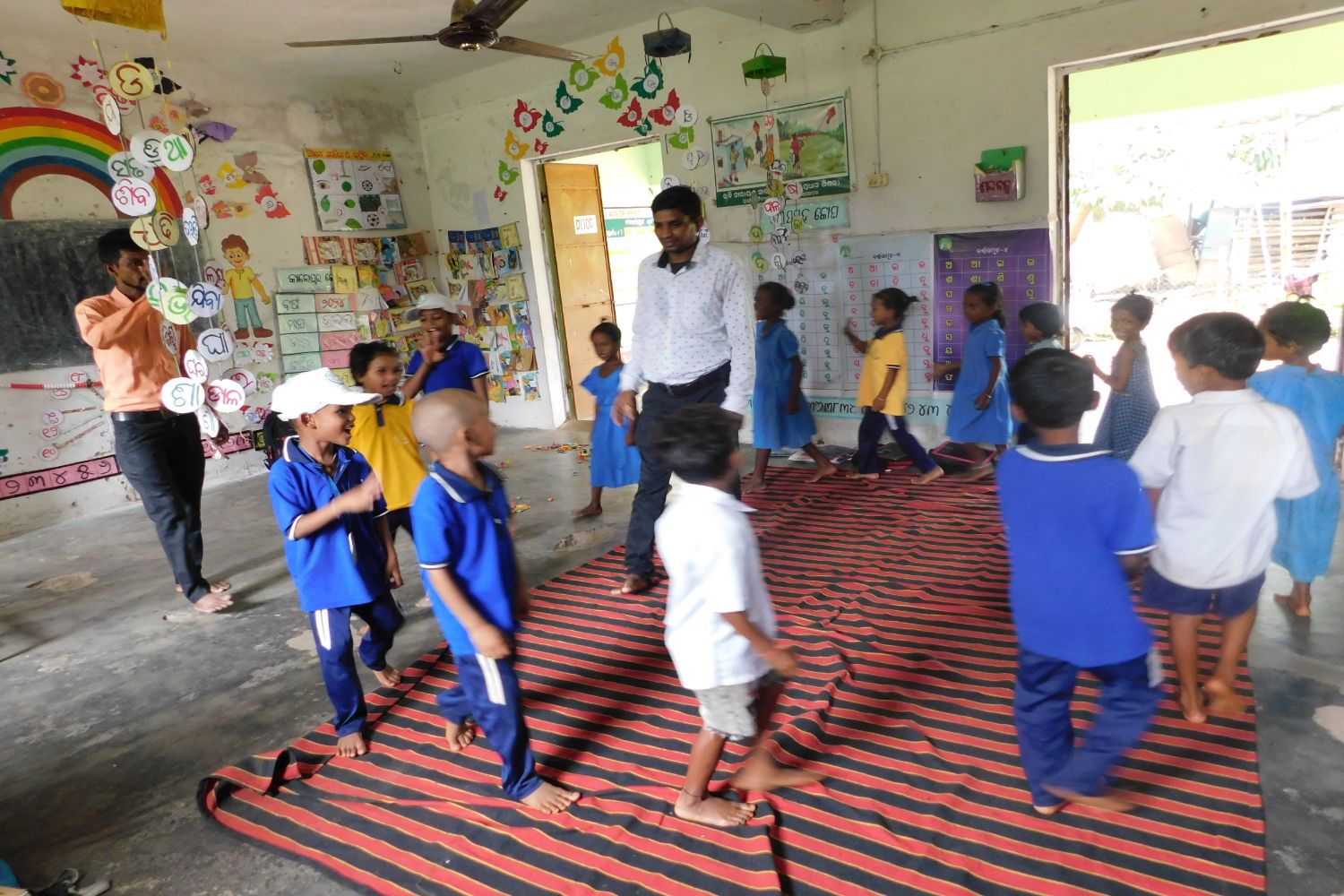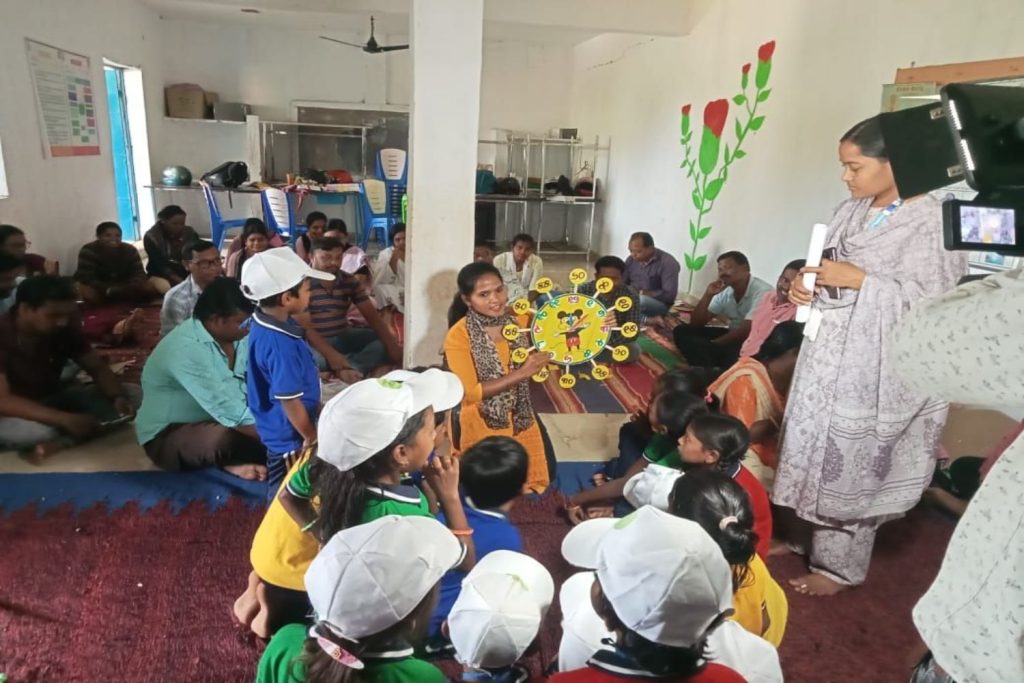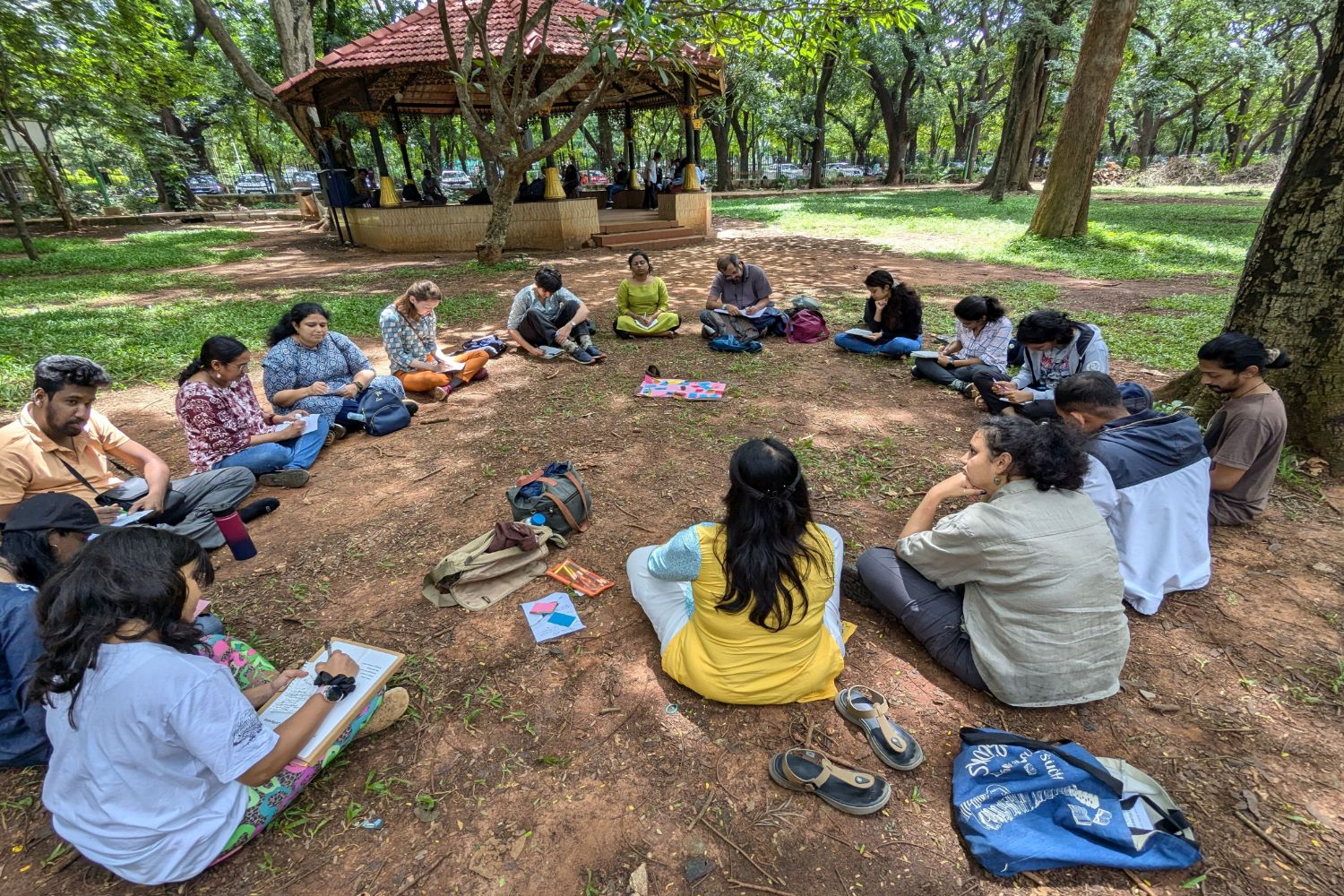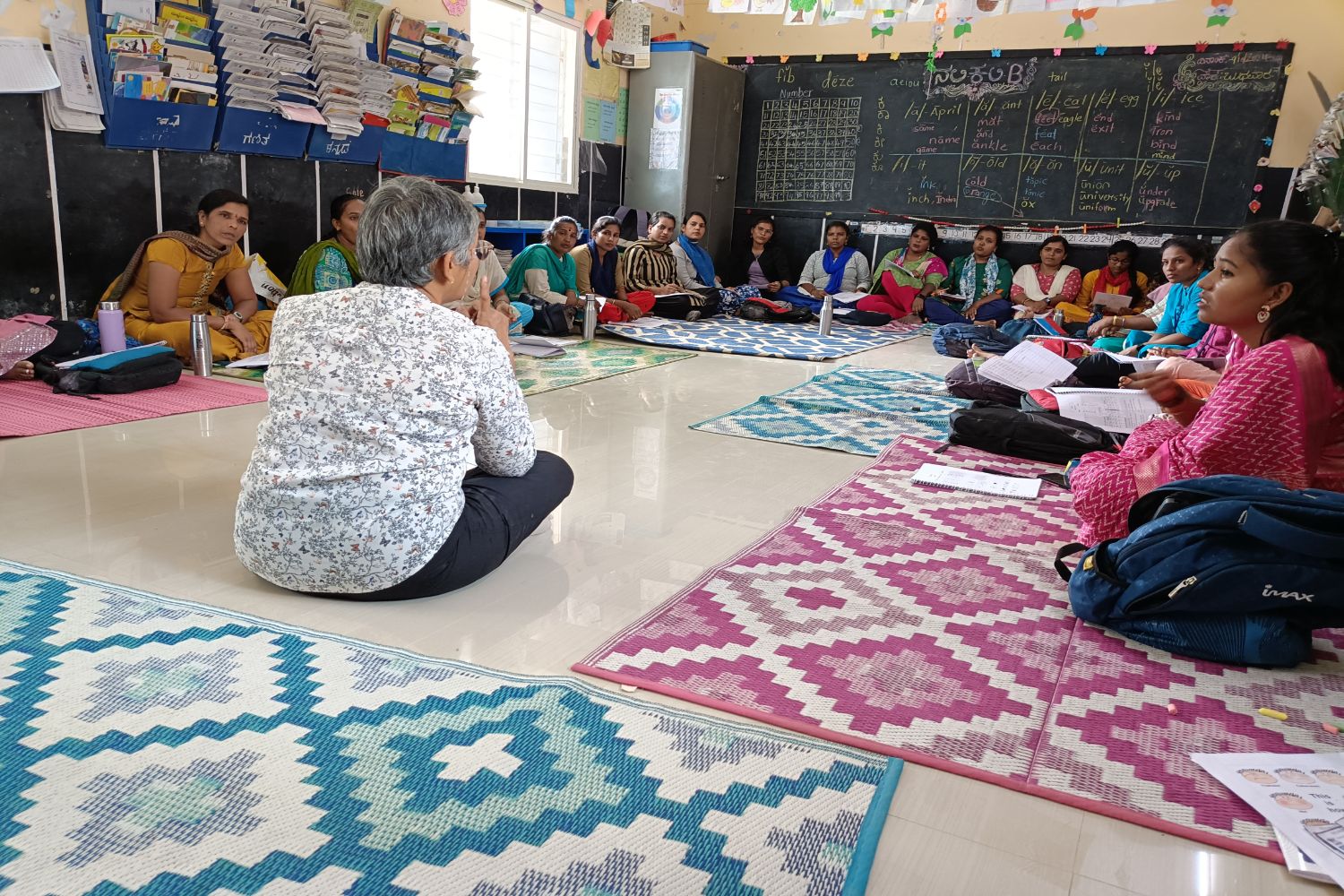Capacity building of CSOs: the experience of Klorofeel Foundation
In “Capacity building of CSOs”, Jitendra Nayak and Siba Prasad Gauda discuss their experiences of capacity building, working in a remote geography.

Klorofeel Foundation is dedicated to enhancing the education of underprivileged children attending government schools, particularly in rural tribal areas. It has a six-member field team drawn from diverse backgrounds. Its work is based in the Bissamcuttack Block of Rayagada district in Odisha.
This field team works along with 35 community volunteers called Saathis. They work with five government schools and 19 community learning centers. The goal is to improve the level of education of around 400 primary school students and the functioning of these schools and Learning Centres.
Our journey began with an assessment of the children’s skills, parental aspirations, school operations, and the overall learning environment. We found that children struggled to read and comprehend textbooks. These were in Odia, a language very different from their mother tongue. Many students also faced challenges with basic math. Parents viewed schools primarily as places for midday meals rather than as centres for learning.
In response to these findings and the need, our strategy of intervention in Bissamcuttack block got largely influenced by our capacity to work closely with the community. At that time, we also had the limitations of not knowing how to influence the school system, and how to work with children in the age group of 3 to 6 years.
So, to begin with, we started working with children from grades 1 to 5 in the community space. We did this by setting up community learning centres. We also started working with mothers’ groups and community facilitators.
However, we quickly encountered difficulties in helping children improve their reading comprehension skills. We did see some progress in their math skills and listening and speaking abilities in Odia. However, we realized that significant improvements in reading and understanding Odia text were essential. This was especially so, as the curriculum became more complex in the higher grades.
We expressed our training need to Wipro Foundation for teaching language. We were fortunate to participate in training offered by OLEP. This focused on helping children read and comprehend language. Siba, our team anchor, and Laxman, who is fluent in Odia, were selected to attend this training.
Following the partnership with Wipro Foundation, our staff started to directly facilitate the learning of children in grades 1 to 5 in the learning centres, and demonstrated activity-based learning in schools. This experience highlighted challenges such as managing multi-grade and multi-level classrooms, helping students solve math problems, contextualizing contents in EVs, and helping children learn English.
To address these challenges, we identified capacity-building needs and explored training opportunities offered by Wipro Foundation. While exploring capacity-building opportunities, we aimed to align our needs with the offered programs.
However, this was not our only approach. We opted for trainings not only to address our challenges but also selected trainings that also complemented activities we were good at. In addition to reviewing the training brochure, we engaged in discussions with Wipro Foundation program managers to gather more information before committing to any training.
Selecting participants for the capacity building training involved a two-step process. First, the selection process for training participants involved discussions within our team to assess both organizational needs and individual interests, allowing everyone to enhance their skills. The team anchor, who participated in all the trainings, then discussed with the staff to create a participant list that reflected both team needs and individual strengths.
Second, in case of more numbers of staff showing interest for any training, we prioritized those who would benefit the most from the training. We also simultaneously tried to ensure that they effectively shared the knowledge with other team members after the training. This decision-making process included input from our CEO.
The involvement of our CEO in various training sessions was a crucial decision. This provided insights into the core themes and processes emphasized by the trainers. For example, a training session on primary-grade math taught us to encourage critical thinking. This significantly improved our interactions with students and our teaching materials.
Another session on teaching English was about integrating creative methods related to art making exercises. Through this process, we realized the importance of the role of an anchor to foster collaboration among participants and transform individual contributions of varying quality into a cohesive and meaningful piece.
We conduct centralized training sessions for our community volunteers at least once a month. This allows us to share insights and apply what we have learned. Our staff members share the learning between themselves. They also work together to contextualize the knowledge and prepare TLMs before demonstrating them to the volunteers. Then the community volunteers and Klorofeel staff use the learning from the training to facilitate the learning at the community learning centres and the schools.
This approach has enhanced our effectiveness in community learning centers and schools. Lilabati Kadraka, our Siksha Saathi says, “After taking training on Odia language, numeracy, English and EVS, I became aware about activity-based joyful learning methods of different subjects. This approach helped the students to better understand the basic concepts of these subjects.”
Weekly team meetings focus on assessing the impact of our learning strategies. Teachers have noted the effectiveness of innovative methods. These include using Varna Samuha for language instruction and Ganit Mala for math. They have shown interest in incorporating these techniques into their teaching.
We also invited the Block Education Officer (BEO) and officials from the District Institute of Education and Training (DIET) to observe our practices. Their visits have helped us organize training sessions on innovative language learning using the Varna Samuha approach for the teachers.

“Through the support of Klorofeel Foundation, the learning capacities of the students have improved. Before taking classes on numeracy and language, the facilitator of Klorofeel Foundation and myself discuss the lesson plan and methodology. The children are enjoying the activity-based teaching and learning processes’’, says Karunakar Hial, Headmaster, Government Primary School, Chanchadamundi, Bissamcuttack, Rayagada.
Our capacity-building efforts have significantly improved our ability to assist primary-grade children. We have been able to expand our focus from just Odia language and math skills to facilitating learning across all subjects. We have also managed to improve the interactions of mothers’ groups with the school system.
Our team anchor Siba Prasad Gauda says, “After attending Foundational Language Training from OELP, we contextualized the Varna Samuha method from Hindi into Odia with many joyful activities. This pedagogical approach attracted our Saathis and students. Students wrote their names with confidence within two weeks of our interventions. This boosted the confidence of our team. The decoding process was just like magic. Students recognized their spoken words in the second level of the Varna Samuha Learning Process. The first challenge was learning of all the Odia maatras. However, gradually it worked after having print-rich classrooms, as well as adopting all the processes suggested by OELP.’’
Trainings have significantly helped in improving the language and math skills. Children are now able to read Odia texts within six months to a year of intervention. Many grade-three students can read English stories fluently, despite English being introduced only in Class 3. In the 2023-24 academic year, 32 out of the 59 fifth-grade students who took entrance exams for model schools like Navodaya and Ekalavya qualified for admission.
Through focused interventions, mothers’ groups are taking interest to observe the learning progress of their children. Our learning facilitator Bijay Batra Says, “Mothers’ groups are regularly attending the PTA meetings. They are asking the teachers about the marks secured by the students in the examination. They are also following up on the necessary data of their children like accuracy of AADHAR details matching with birth certificates, etc.’’
Overall, our capacity-building process has boosted our staff’s confidence. It has also fostered active participation from teachers, CRCs, BEO and local community members in enhancing primary education in the area.



No approved comments yet. Be the first to comment!